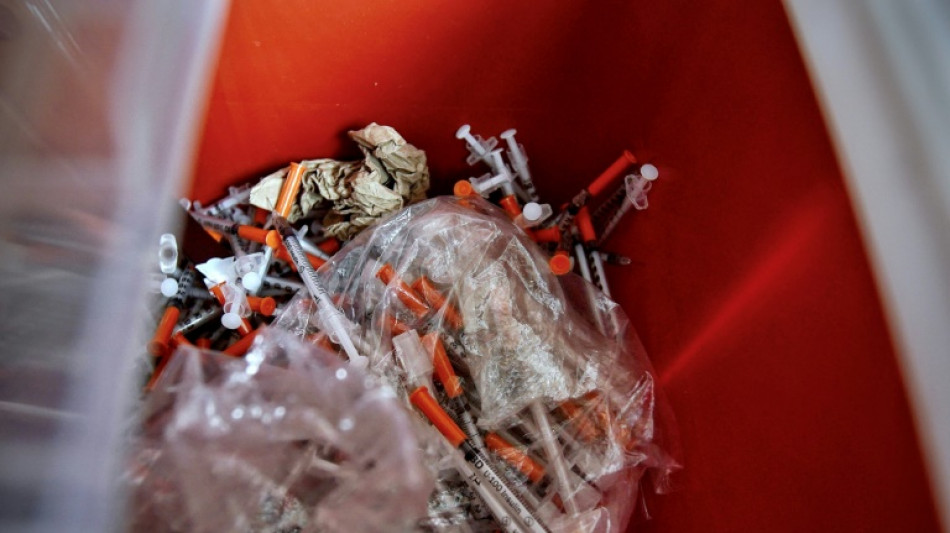
-
 Indian great Ashwin out of Australia's BBL after knee surgery
Indian great Ashwin out of Australia's BBL after knee surgery
-
Indian Sikh pilgrims enter Pakistan, first major crossing since May conflict: AFP

-
 Asian markets slip as traders eye tech rally, US rate outlook
Asian markets slip as traders eye tech rally, US rate outlook
-
Nintendo hikes Switch 2 annual unit sales target

-
 Typhoon flooding kills 5, strands thousands in central Philippines
Typhoon flooding kills 5, strands thousands in central Philippines
-
Jobe Bellingham finding his feet as Dortmund head to City

-
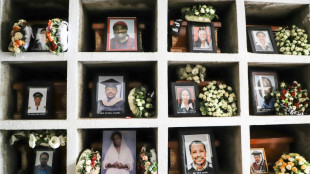 US civil trial to hear opening arguments on Boeing MAX crash
US civil trial to hear opening arguments on Boeing MAX crash
-
Jamie Melham on Half Yours only second woman to win Melbourne Cup

-
 Myanmar scam hub sweep triggers fraudster recruitment rush
Myanmar scam hub sweep triggers fraudster recruitment rush
-
Biggest emitter, record renewables: China's climate scorecard

-
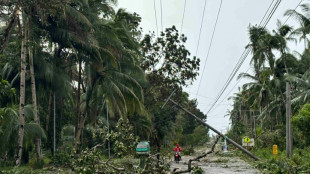 Floods strand people on roofs as typhoon pounds Philippines
Floods strand people on roofs as typhoon pounds Philippines
-
Asian markets swing as trades eye tech rally, US rate outlook

-
 South Korea to triple AI spending, boost defence budget
South Korea to triple AI spending, boost defence budget
-
Trott to leave as Afghanistan coach after T20 World Cup

-
 Late queen's fashion to go on show at Buckingham Palace
Late queen's fashion to go on show at Buckingham Palace
-
In Morocco, exiled Afghan women footballers find hope on the pitch

-
 EU scrambles to seal climate deal ahead of COP30
EU scrambles to seal climate deal ahead of COP30
-
New Yorkers expected to pick leftist Mamdani in stunning election

-
 Pining for Pinochet: how crime fanned nostalgia for Chile's dictator
Pining for Pinochet: how crime fanned nostalgia for Chile's dictator
-
Why an Amazon chef said no to a vegan dinner for Prince William event
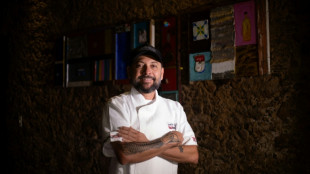
-
 Cement maker Lafarge on trial in France on charges of funding jihadists
Cement maker Lafarge on trial in France on charges of funding jihadists
-
Worker dies after medieval tower partly collapses in Rome

-
 Run-machine Labuschagne in form of his life ahead of Ashes
Run-machine Labuschagne in form of his life ahead of Ashes
-
Prince William plays football, volleyball in Rio on climate trip

-
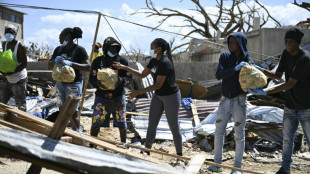 Jamaicans mobilize aid in aftermath of Melissa's wreckage
Jamaicans mobilize aid in aftermath of Melissa's wreckage
-
Starbucks cedes China control to Boyu Capital

-
 'Wild at Heart' actress Diane Ladd dies at 89
'Wild at Heart' actress Diane Ladd dies at 89
-
Xhaka lifts Sunderland into fourth after Everton draw

-
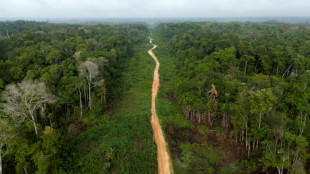 Brazil records biggest annual fall in emissions in 15 years: report
Brazil records biggest annual fall in emissions in 15 years: report
-
Victor Conte, mastermind of BALCO doping scandal, dead at 75: company

-
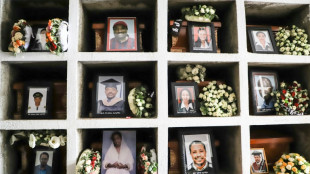 Trial opens in 1st US civil case on 2019 Boeing MAX crash
Trial opens in 1st US civil case on 2019 Boeing MAX crash
-
Barrett brothers out of All Blacks' clash with Scotland

-
 Medieval tower partially collapses in Rome, trapping worker
Medieval tower partially collapses in Rome, trapping worker
-
Arsenal's Arteta says injured Gyokeres out of Slavia Prague tie

-
 Alonso says 'quality' Wirtz helped get him Real Madrid job
Alonso says 'quality' Wirtz helped get him Real Madrid job
-
US Fed's Cook warns inflation to stay 'elevated' next year

-
 Blue heaven: huge crowds salute Los Angeles Dodgers in victory parade
Blue heaven: huge crowds salute Los Angeles Dodgers in victory parade
-
Dutch centrist Jetten clinches election win: final tally

-
 Mamdani extends olive branch to anxious NY business community
Mamdani extends olive branch to anxious NY business community
-
Sierra Leone chimpanzee sanctuary reopens after deforestation protest
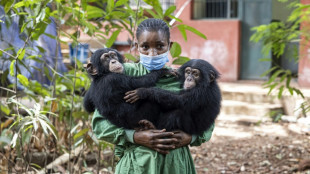
-
 Shein bans sex dolls after France outrage over 'childlike' ones
Shein bans sex dolls after France outrage over 'childlike' ones
-
England full-back Steward doubtful for Autumn rugby clash with Fiji

-
 Bayern know how to 'hurt' PSG, says Neuer
Bayern know how to 'hurt' PSG, says Neuer
-
Rybakina downs Swiatek to reach WTA Finals last four

-
 Ex-France international Ben Yedder to stand trial on rape charges
Ex-France international Ben Yedder to stand trial on rape charges
-
Djokovic confirmed for ATP Finals, says Italian federation boss

-
 Trent should be remembered for 'great' Liverpool moments, says Slot
Trent should be remembered for 'great' Liverpool moments, says Slot
-
Stock markets diverge despite boost from AI deals

-
 Prince William awed by Rio on climate-focused trip to Brazil
Prince William awed by Rio on climate-focused trip to Brazil
-
Violence in Sudan's El-Fasher could be war crimes, says top court


US fight against opioid overdoses becomes one of racial justice: researcher
In 2020, the death rate from drug overdose among Black people surpassed that of white people in the United States for the first time since 1999, according to a study published this year.
Its author, Joseph Friedman, a researcher at UCLA University in California, details for AFP the reasons for this recent shift.
- What were the different waves of opioid overdoses in the United States? -
The first wave was overdoses coming from prescription opioids that were essentially provided to the population through the healthcare system ... And then, as the US started to cut back heavily on prescription opioid access, a lot of people started using heroin.
That was associated with a large increase in overdose deaths because people are moving from a less dangerous to a more dangerous form of opioids ... And then the third wave is the shift to illicit fentanyl.
And here is where the US really kind of became an extreme global outlier in terms of overdose. Because illicit fentanyls are potentially several hundred times more potent than heroin by weight.
And the fourth wave is what we're seeing very recently, which is a huge increase in polysubstances, which means: basically people are using fentanyls but they're also mixing them with many different kinds of other substances. Some of this is intentional and much of this is unintentional.
- Why did you start studying racial inequalities in drug overdoses? -
There's been this narrative, a very powerful kind of cultural narrative in the US, historically, over the past like 10 or 15 years, that addiction and overdose was a quote unquote, white problem.
And this is something that I have written about critiquing.
It's true that during the first wave of the overdose crisis, white overdose death rates were higher than Black overdose deaths rates. In 2010, they were actually double, so approximately twice as high.
But that has really shifted. Basically after the first wave, we've seen overdose deaths rise faster among Black individuals than white individuals.
So basically, the only time where it was true that white communities were disproportionately affected was because of prescription opioids.
The roots of that are complex, but it's pretty clear that that relates to the deep-seated structural racism in the healthcare system, that actually really denies access to controlled substances to people of color.
- What is the situation today? -
Black communities are disproportionately affected by the shift of fentanyls. For the first time since the 1990s, the Black overdose death rate overtook the white overdose death rate in 2020.
The goals of overdose prevention now really align with the goals of racial justice movements.
There's really good evidence that fentanyl has made incarceration a very potent risk factor for overdose death. Immediately after people are released from prison, there's a huge spike in the risk of overdose death.
Combined with mass incarceration of Black communities, which we know is a big problem in the US, this is one of the key driving factors.
With the drug supply becoming so dangerous, it requires a lot of resources to stay safe. Access to health care, access to substance use treatments, access to harm reduction, housing, employment... all of these things give stability.
And so inequalities in these root conditions are, I think driving inequalities in overdose now.
People of every racial group use drugs. That's just a fact of life. Who dies from them is dictated by access to resources and cultural patterns, and there are deep-seated inequalities in terms of the resources that people need to stay safe.
- What do you think the answer should be? -
Basically the war on drugs, this police centric approach, has been an utter failure.
Our overdose death rates are something like three times higher than the second worst country, and they're over 20 times the average.
We have the worst drug overdose death rate in recorded history. There's never been anything even close to what we're experiencing right now.
We would need really, really profound restructuring of the way society spends money on drugs to actually make a difference here.
Harm reduction is an important solution, but it is not getting at the root issues here.
Which is access to treatments, and making the drug supply safer.
In Europe, in many places there's just heroin prescription programs. That's the kind of stability that helps people overcome substance use disorder.
J.Horn--BTB




